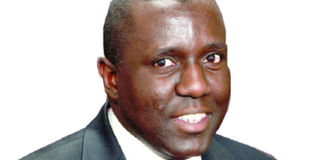Hopefully, the Supreme Court overcomes this big misfortune

The country and the world for a few days was glued to television and other multimedia as the Supreme Court sat to hear the presidential election petition filed by presidential candidate runner-up Robert Kyagulanyi, aka Bobi Wine, after the January 14 General Election.
Under the laws of the land, only the Supreme Court is seized with the jurisdiction to “inquire” into and “adjudicate” the question of whether the president was validly elected. The same supreme law of the land provides that the presidential election shall be conducted by an independent Electoral Commission and shall be by universal adult suffrage and by secret ballot. So many statutory clauses go into further details but, the gist of this particular election and the reluctance to tamper with its outcome is founded in two big reasons.
First, is its status as the only national election in a constituency that traverses the entire country. When the 1995 Constitution was promulgated, Uganda’s population was about 18 million people (16.6 million was the figure recorded in the 1991 census). In 2021, Uganda’s population has grown to 46 million people by some estimates and may soon tip to 50 million people just 10 million people behind the population of its former colonial master, Great Britain. Overturning a national election is by no means an easy task. In the US, the State-by-State challenges to the presidential election by former president Donald Trump fell flat on their face even after he had succeeded in his single four year-term to tilt the Supreme Court for decades to the right.
Even then, the judicial anxiety of overturning an election result with a record turnout (more than 150 million votes cast) proved to be impossible and beyond the capacity of the courts. In the same year, 2020, Tanzania had a predictable outcome, the continued dominance of Chama Cha Mapinduzi and a near wipeout of the Opposition parties in Parliament. Tanzania does not allow election petitions challenging the election of the president.
The country’s October 2020 poll result hit hard as the international consternation with the result was also a failure to come to terms with an intransigent John Magufuli, who has managed to be both a populist and authoritarian in his handling of State affairs. Prior to 2020, two African countries, Malawi (2019) and Kenya (2017) struck down their presidential elections mostly on account of the failure of the Electoral Commissions to conduct elections according to the law.
Malawi struck down with style, judges arrived by military helicopter to annul the election. They wrote a single judgment sidestepping the 2006 risk, where according to retired Justice and former Attorney General G. W. Kanyeihamba, his former colleague after convincing him to “annul” the election told him just as they walked into the court room he had changed his mind. I remember receiving a message from my former boss, Prof Joe Oloka Onyango after forwarding him the reams of the Malawi judgment from a good friend and old boy, Vincent Kazimierz, who had lived and worked in Malawi, that my email kept on forwarding the judgment almost shutting down his email system.
In 2017, the Kenyan Supreme Court overturned the presidential election result. Times have never really been the same as relations between the Judiciary and the Executive hit rock bottom. The Kenyan annulment was even more spectacular as in a prior election petition in 2013, “court” in inquiring into the validity of the election visited the offices of the Electoral Commission.
Chief Justice Willy Mutunga quietly left the stage, but it was his replacement David Maraga and his deputy who were very much the brains behind the 2017 annulment. Ms Philomena Mwilu, now the Acting Chief Justice (in Kenya now all the three superior courts) are headed by women, sharply questioned the Electoral Commission on the transmission of results, especially after they volunteered they had transmitted by manual means yet the law dictated only electronic transmission. Mr Maraga was lucky to leave with the flag waving on his car, while Ms Mwiru has even been arrested by the DPP to answer charges, suffered the misfortune of being ruled out of office by a High Court Judge in Meru for being unfit to hold office.
In 2017, the Kenyan rerun turned out to be a windbag for the incumbent as the successful petitioner Raila Odinga had run out of gas and his backers after giving him their best said goodbye at what would have been his crowning moment. The rest is history. So the pitiful news candidate Kyagulanyi’s withdrawal of his petition is felt at many levels. First, is the loss of dramatic colour-fall, the Supreme Court in a first, had allowed the tender of audiovisual evidence, the clash of Whatsapp images with declaration forms.
Second, the long train of evidence that had reached the compound of the Supreme Court ahead of the deadline was never to be heard.
Mr Ssemogerere is an Attorney-At-Law and an Advocate.




